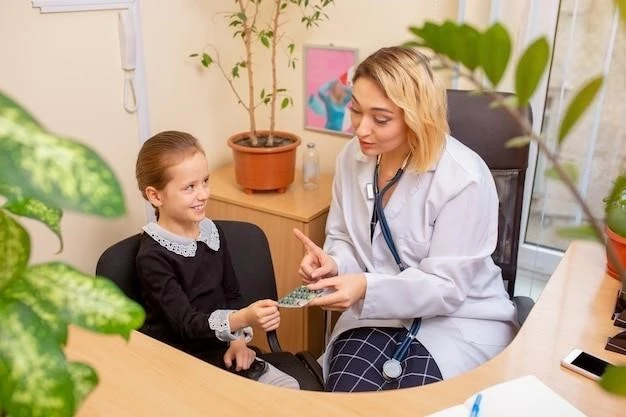Introduction
When dealing with Ruzicka Goerz Anton Syndrome‚ it is crucial to understand the complexities of this rare genetic disease. From its initial description in 1981 to the main symptoms like rough‚ scaly skin‚ deafness‚ intellectual disability‚ and skeletal anomalies‚ navigating this condition requires specialized knowledge and resources.
Description of Ruzicka Goerz Anton Syndrome
Ruzicka Goerz Anton Syndrome is a rare genetic disease characterized by ichthyosis (rough‚ scaly skin)‚ deafness‚ intellectual disability‚ and skeletal anomalies. First described in 1981‚ this condition presents challenges in diagnosis due to its rarity and the complex range of symptoms it encompasses. Understanding the distinct features of Ruzicka Goerz Anton Syndrome is crucial for accurate identification and management.

Symptoms and Diagnosis
Recognizing the symptoms such as rough‚ scaly skin‚ deafness‚ intellectual disability‚ and skeletal anomalies is key to diagnosing Ruzicka Goerz Anton Syndrome. Due to its rarity‚ a thorough diagnostic process may involve specialized medical professionals.
Characteristics of Ruzicka Goerz Anton Syndrome
Ruzicka Goerz Anton Syndrome is distinguished by ichthyosis (rough‚ scaly skin)‚ deafness‚ intellectual disability‚ and skeletal anomalies. First identified in 1981‚ this rare genetic disease poses challenges due to its diverse range of symptoms. Understanding these distinct characteristics is essential for accurate identification and comprehensive management.
Diagnostic Process and Challenges
Diagnosing Ruzicka Goerz Anton Syndrome can be complex due to its rarity and the varied symptoms it presents‚ including rough‚ scaly skin‚ deafness‚ intellectual disability‚ and skeletal anomalies. A multidisciplinary approach involving genetic testing and consultation with rare disease experts may be necessary to navigate the diagnostic journey effectively.

Cause and Genetic Inheritance
Understanding the genetic inheritance of Ruzicka Goerz Anton Syndrome is vital. With a presumed autosomal-recessive pattern and manifestations like rough‚ scaly skin‚ deafness‚ intellectual disability‚ and skeletal anomalies‚ genetic factors play a significant role in this rare disease.
Understanding the Cause of Ruzicka Goerz Anton Syndrome
Ruzicka Goerz Anton Syndrome’s cause is linked to genetic factors‚ with an assumed autosomal-recessive inheritance pattern. This rare disease’s manifestations‚ such as rough‚ scaly skin‚ deafness‚ intellectual disability‚ and skeletal anomalies‚ emphasize the significant role of genetics. Understanding the genetic basis of the syndrome is crucial in the diagnosis and management process.
Treatment and Management
Adopting appropriate management strategies is crucial in addressing the symptoms of Ruzicka Goerz Anton Syndrome‚ such as rough‚ scaly skin‚ deafness‚ intellectual disability‚ and skeletal anomalies. Seeking guidance from healthcare professionals specializing in rare genetic diseases can facilitate effective treatment and comprehensive care.
Approaches to Managing Ruzicka Goerz Anton Syndrome
Implementing effective management strategies is essential in addressing the symptoms associated with Ruzicka Goerz Anton Syndrome‚ such as rough‚ scaly skin‚ deafness‚ intellectual disability‚ and skeletal anomalies. Collaboration with healthcare professionals experienced in rare genetic conditions can help in developing a tailored treatment plan to enhance the individual’s quality of life.
Support and Resources
Accessing reliable resources and support networks can greatly benefit individuals with Ruzicka Goerz Anton Syndrome. From patient resources to caregiver support‚ exploring available resources can provide valuable assistance in managing this rare genetic condition effectively.
Available Resources for Individuals with Ruzicka Goerz Anton Syndrome
When facing Ruzicka Goerz Anton Syndrome‚ exploring available resources can provide essential support. From patient-focused organizations to genetic counseling services‚ accessing these resources can offer valuable assistance in managing this rare genetic condition effectively.
Research and Advances
Stay informed about the latest research on Ruzicka Goerz Anton Syndrome. Discover advancements in understanding the disease and explore potential breakthroughs in treatment options. Keeping up-to-date with current studies can provide valuable insights into managing this rare genetic condition.
Current Research on Ruzicka Goerz Anton Syndrome
Keeping up-to-date with the latest research developments related to Ruzicka Goerz Anton Syndrome is essential. By staying informed about ongoing studies‚ potential advancements in understanding and managing this rare genetic disease can be identified. Research efforts play a crucial role in enhancing the diagnosis and treatment of individuals affected by Ruzicka Goerz Anton Syndrome.
Prognosis and Quality of Life
Understanding the prognosis and impact of Ruzicka Goerz Anton Syndrome on quality of life is crucial. By exploring available resources‚ staying informed about research‚ and seeking specialized care‚ individuals can better manage their condition and improve their quality of life.
Impact of Ruzicka Goerz Anton Syndrome on Quality of Life
Understanding how Ruzicka Goerz Anton Syndrome affects the quality of life is crucial. By recognizing the challenges posed by symptoms like rough‚ scaly skin‚ deafness‚ intellectual disability‚ and skeletal anomalies‚ individuals can better cope with the condition and seek appropriate support to enhance their overall well-being.
